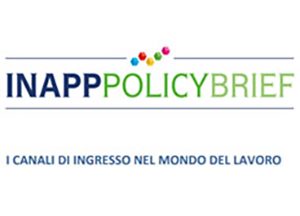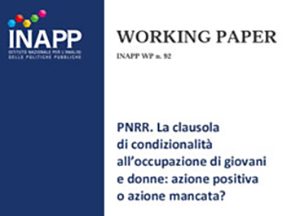This unit is in charge of carrying out analyses on macro-economic labour market dynamics as well as assessments on labour policies. The active and passive policy system and welfare systems are also subject to investigation. Special attention is paid to the following issues: wage evolution (with special reference to minimum wage levels), labour regulation, industrial relations and the most relevant structural phenomena, including the evolution of gender issues, demographic dynamics and the ageing workforce, youth unemployment, labour quality and productivity dynamics. On top of that, emerging labour phenomena and the latest trends in employment (remote work, work schedule reduction, digital platform jobs) are the object of analysis. Moreover, two recurring surveys are carried out with regard to labour supply (INAPP-PLUS), and labour quality (INAPP-QDL).
Person-In-Charge: Manuel Marocco
Secretariat: Lorenza Zizi | Mary Rinaldi | Natale Cersosimo 06/85447524
[email protected]
The Labour Market Unit is composed of four Research Groups:
1) Labour regulation, industrial relations and technological innovation – Person-In-Charge Manuel Marocco ([email protected]) – Following a multidisciplinary approach from a comparative perspective, this group explores current trends both in labour protection systems, including the social security system, and in labour public regulation policies, with special focus on the impact of technological innovation. The industrial relations system is also under study, with special focus on the role played by different stakeholders, on the evolution of the collective bargaining framework, and on the development of innovative patterns of production and work organization.
2) Labour market and wage dynamics – Person-In-Charge Massimiliano Deidda ([email protected]) – This group carries out analyses on structural characteristics and short and long-term trends in labour supply, with regard to the demographic, sectorial and work profiles. Key factors of wage structure are also being studied, especially those related to the economic cycle and productivity. Assessments are made on the impact of regulation on levels and composition of employment, and on wage distribution.
3) Gender analysis of labour market and public policies – Person-In-Charge Monica Esposito ([email protected]) – In line with the Gender Double Approach research methodology increasingly adopted all throughout Europe, this group applies gender perspective to labour market analysis and to the study of policies in this area. Characteristics and effects produced on male and female workers by each studied phenomenon are also examined in the light of the intersection of gender with major sociodemographic variables. Special attention is devoted to the analysis of public policies and to the study of actual and potential impact that policies may have on the volume and profile of female workers employment.
4) Demographic dynamics and aging workforce – Person-In-Charge Pietro Checcucci ([email protected]) – This group analyzes the labour market both in the light of population demographic dynamics, and with regard to the scaling up of digitalization in the economy. Support is provided to the Ministry of Labour and Social Policies in order to keep track of the Madrid International Plan of Action on Ageing (MIPAA), also by cataloging instances of good practice in the field of public policies and aging-related initiatives enacted in the relevant contexts. This group is also responsible for Inapp’s participation in coordinating activities related to active aging and promoted by the Department for Family Policies of the Presidency of the Council of Ministers.
Le indagini ricorrenti condotte dalla Struttura sono inserite nel Programma statistico nazionale:
- PLUS (Participation, Labour, Unemployment, Survey) – Responsabile Francesca Bergamante ([email protected])
- QDL (Indagine Qualità del Lavoro) – Responsabile Tiziana Canal ([email protected])
In the spotlight


